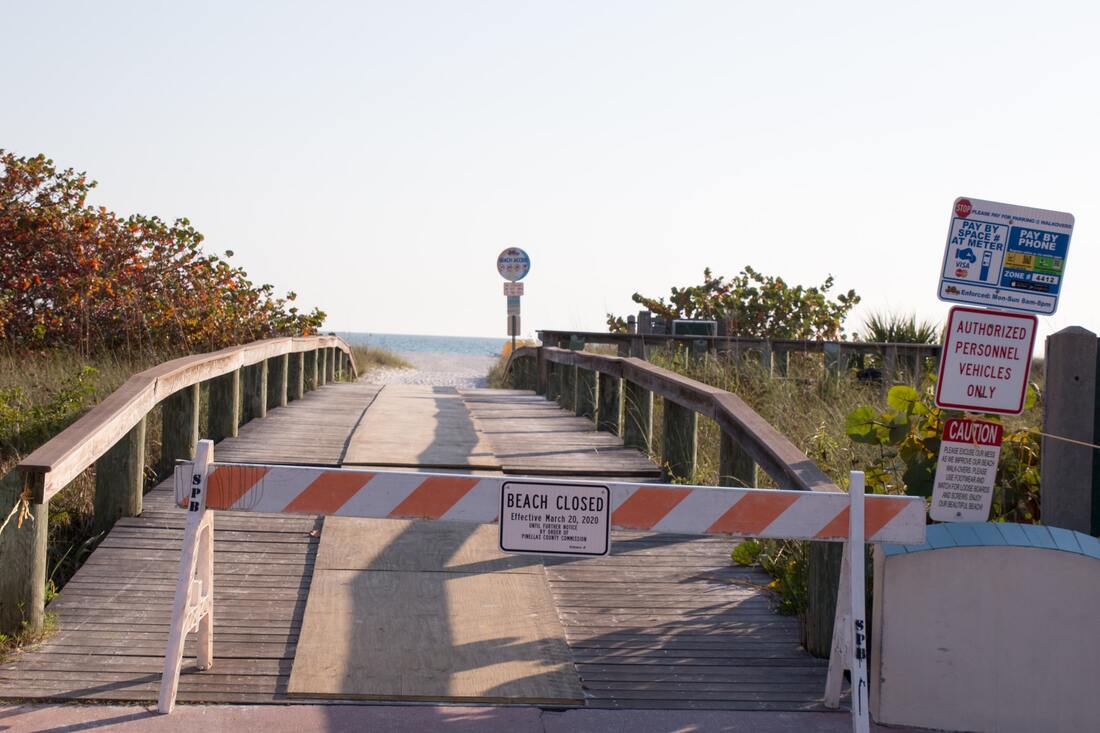by Jeanine Ramirez
Jeanine is a recent graduate from Saint Leo University and a past participant in the U.S. Conference of Catholic Bishops’ Laudato Si’ Advocates Program.
Jeanine is a recent graduate from Saint Leo University and a past participant in the U.S. Conference of Catholic Bishops’ Laudato Si’ Advocates Program.
Photo by Hayden Dunsel on Unsplash
Residents of all ages around my home in the Tampa, FL, area have felt the economic, social, and physical and emotional health impacts of COVID-19. Great sacrifices have been made for the wellbeing of friends, families, and strangers. Despite this, there are some that blame young people for failing to do their part in stopping the spread of the virus. Back at the beginning of the quarantine, one article even went so far as to say that “a generational war is brewing over the coronavirus,” and a lack of alarm among young adults could “hinder the fight against the virus” and “endanger elders.”
When it comes to the environment, this generational dynamic is flipped on its head: many young people believe that their parents and grandparents failed them. Last fall, Greta Thunberg famously accused world leaders of destroying the earth in pursuit of “fairy tales of eternal economic growth.” With COVID-19, many have seen the same passive disregard that Greta criticized, except the blame is on people of the younger generation who choose to overlook recommendations in place to protect their parents, grandparents, and others who are most at risk. This disunity between generations and disregard for the well-being of others is far from what Pope Francis envisions in his encyclical Laudato Si’, which recently celebrated its fifth anniversary on May 24th.
In Laudato Si’ Pope Francis devotes an entire section to “justice between the generations.” Throughout his message, Pope Francis makes it clear that caring for others and for the environment are one and the same. That is why he urges us to consider: what general direction is society heading in? What values are guiding us? And "what kind of world do we want to leave behind to those who come after us?" These questions, commonly asked in the context of caring for the environment and how it will be left for the next generations, must now be asked about the response to COVID-19 as well.
Steps are being taken to bridge the gap between the environment and the spread of disease. As highlighted in a Tampa Bay Times article, Catholic and evangelical leaders met virtually during the quarantine to discuss how we should approach the intertwined problems of environmental protection and deadly contagions. The leaders discussed how respiratory and general effects of air pollution make vulnerable individuals even more susceptible to viruses such as COVID-19. Catholic Bishop Gregory Parks said that “In these things, we are united in the challenges, and, therefore, we must work together for a common solution.” In order to help give the vulnerable a fighting chance, we must also help the environment for their sake. As we inch towards life after the pandemic, I hope that more people, young and old, will consider how they can serve the needs of others, especially those who might be fearful to return to normal life. This is an opportunity to practice the charity that leads to reconciliation between the generations, instead of the selfishness that drives us apart.
When it comes to the environment, this generational dynamic is flipped on its head: many young people believe that their parents and grandparents failed them. Last fall, Greta Thunberg famously accused world leaders of destroying the earth in pursuit of “fairy tales of eternal economic growth.” With COVID-19, many have seen the same passive disregard that Greta criticized, except the blame is on people of the younger generation who choose to overlook recommendations in place to protect their parents, grandparents, and others who are most at risk. This disunity between generations and disregard for the well-being of others is far from what Pope Francis envisions in his encyclical Laudato Si’, which recently celebrated its fifth anniversary on May 24th.
In Laudato Si’ Pope Francis devotes an entire section to “justice between the generations.” Throughout his message, Pope Francis makes it clear that caring for others and for the environment are one and the same. That is why he urges us to consider: what general direction is society heading in? What values are guiding us? And "what kind of world do we want to leave behind to those who come after us?" These questions, commonly asked in the context of caring for the environment and how it will be left for the next generations, must now be asked about the response to COVID-19 as well.
Steps are being taken to bridge the gap between the environment and the spread of disease. As highlighted in a Tampa Bay Times article, Catholic and evangelical leaders met virtually during the quarantine to discuss how we should approach the intertwined problems of environmental protection and deadly contagions. The leaders discussed how respiratory and general effects of air pollution make vulnerable individuals even more susceptible to viruses such as COVID-19. Catholic Bishop Gregory Parks said that “In these things, we are united in the challenges, and, therefore, we must work together for a common solution.” In order to help give the vulnerable a fighting chance, we must also help the environment for their sake. As we inch towards life after the pandemic, I hope that more people, young and old, will consider how they can serve the needs of others, especially those who might be fearful to return to normal life. This is an opportunity to practice the charity that leads to reconciliation between the generations, instead of the selfishness that drives us apart.
